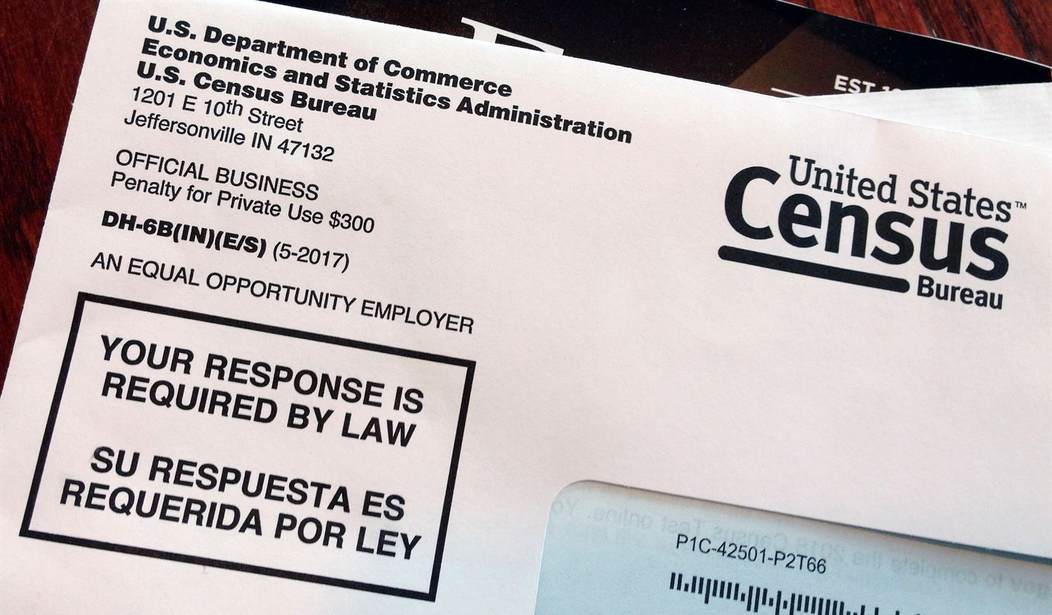The U.S. Census is struggling to fulfill its constitutional duty of counting how many people live in the United States. The global pandemic has made the situation worse but may provide a much-needed impetus to rethink how the census is conducted for decades to come. Thanks to congressional shenanigans, census workers now only have until September 30 to complete in-person interviews (compared to the previously announced October 31 end-date).
The Census Bureau has a chronic shortage of door knockers needed to complete the count and pandemic-driven fears have meant fewer census workers reporting for duty. And, people may be hesitant to open the door to a stranger. While many of these issues reflect these dire, unusual times, this isn’t the first time the census has had issues. Problems such as mounting costs have continued to plague the Census Bureau through the decades. It’s time to follow the lead of other developed countries and abandon antiquated door-knocking in favor of a more data-driven approach. Policymakers should rethink enumeration for a brave, new post-Covid-19 era.
Plenty has changed over the past few decades. E-mail has displaced snail mail, while tax filing and bank statements have been safely digitized. Unfortunately, the federal government hasn’t quite caught up with the digital revolution. Internal Revenue Service (IRS) computer systems remain hopelessly outdated while the Small Business Administration’s (SBA) digital systems proved woefully slow in approving Paycheck Protection Program loans. But perhaps most frustratingly, the federal government has refused to change its approach to enumeration. Every ten years, census workers predictably come knocking until…well…they can’t because of a global pandemic. But even pre-pandemic, the costs of counting the entire U.S. population have steadily risen. According to an analysis by the Government Accountability Office, “the average cost for counting a housing unit increased from about $16 in 1970 to around $92 in 2010.”
Recommended
When policymakers first started planning this year’s census in 2015, it was estimated that the 2020 count would cost a cool $12.3 billion – or about the same cost as the 2010 census. But since then, costs have ballooned to more than $15 billion, or roughly $110 for each household. And, with deep-seated hiring problems, creeping politicization, and dubious marketing and media strategies, costs and dysfunction will only grow. These problems, of course, are hardly a pretext for doing away with enumeration.
The Constitution requires that an “actual Enumeration shall be made within three Years after the first Meeting of the Congress of the United States, and within every subsequent Term of ten Years, in such Manner as they shall by Law direct.” The Founders recognized that this counting of the population was pivotal for crafting a responsive government with a fair, proportional allocation of Congressional seats across the country. But, in recent years, other countries have successfully managed to keep tabs on their populations without sending out the door knockers. According to the United Nations, more than a dozen European countries, including the Netherlands, Norway, Germany, and Switzerland, create census records using administrative information (i.e. birth and death records, change-of-address data) which they already have access to.
The idea of using electronic records for American enumeration isn’t a new phenomenon. Way back in 1995, the National Research Council noted, “high proportion of the U.S. population is included in one or more existing administrative records…the coverage… may well expand in the future.” The Council has continued touting the record-based approach in recent years, urging policymakers in 2011 to use, “records-based information to supplement and improve a wide variety of census operations.” In practice, this would mean agencies such as the IRS and the Social Security Administration (SSA) working together to integrate birth, death, and tax records in order to sketch out a comprehensive demographic picture of America. The IRS even keeps information on non-filers in their Information Returns Master File, allowing researchers to keep track of a large swath of the U.S. population without relying on census data. While privacy concerns are reasonable and inevitable, the status-quo is far worse for freedom-loving Americans.
Every decade citizens endure the indignities of constant IRS and SSA monitoring, while encountering intrusive census questioning. Policymakers can at least streamline Big Brother and force bureaucrats to make better use of the data they already have.
The census as it’s currently structured has outlived its usefulness and should be promptly replaced by an easier, less intrusive system that needn’t rely on door knockers. Now’s the time for a new kind of enumeration to bolster a struggling nation.
Ross Marchand is the Vice President of Policy for the Taxpayers Protection Alliance.
























Join the conversation as a VIP Member